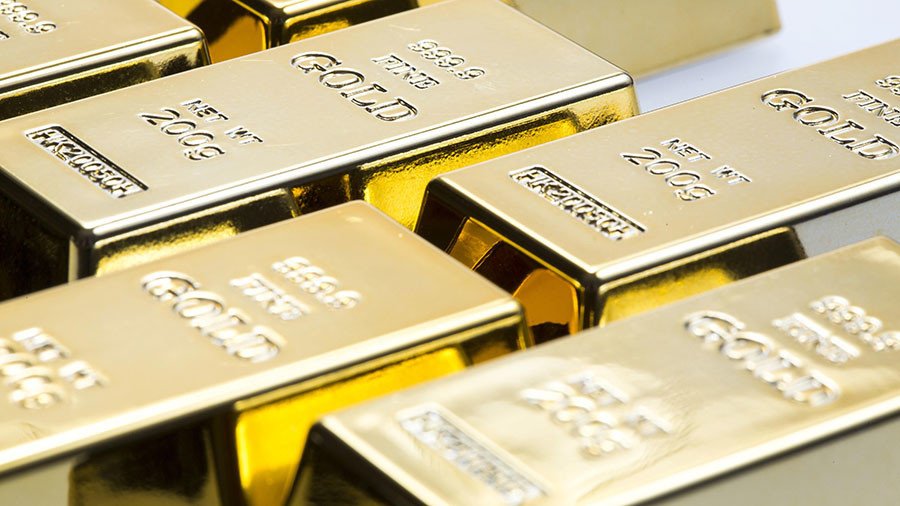Russia aims to boost gold reserves, increase sales to India & China

An arm of Russia's largest lender, Sberbank CIB, plans to more than double its gold sales to India this year and sell more of the precious metal than forecast to China, its head of global markets Andrey Shemetov told Reuters.
Trade with China is more active this year than the bank originally expected, according to Shemetov. Sberbank plans to upgrade an initial sales forecast of 20 tons of gold to China in 2018. It has already sold 14 tons to Beijing in the first quarter alone. Last year it supplied five tons.
The bank also plans to deliver 25-30 tons of gold to India. In 2017, Sberbank sold 10 tons of gold to the world's second-biggest consumer after China.
'Safe haven': Russian banks purchase #gold at record pace https://t.co/t8ClbzN7XGpic.twitter.com/ndgs2Uy1ZT
— RT (@RT_com) February 2, 2018
Purchases for sales to countries such as China and India go through the bank's Swiss branch, while most of Sberbank CIB's gold purchases from Russian gold miners stay within the country.
Shemetov said that, within Russia, Sberbank will keep its 2018 gold purchases flat at 100 tons, including 64 tons bought from local gold miners.
Russian gold reserves hit historic high, stockpiling record 223 tons last year https://t.co/1pBB9LtOZEpic.twitter.com/aSrqTaJhDa
— RT (@RT_com) January 22, 2018
Shemetov welcomed the central bank's efforts to boost the volume of gold traded on the Moscow Exchange. “It is important that the central bank is supporting the Moscow Exchange ... we, as a transparent company, are advocating for an open market,” he said. “I believe that the central bank itself wants an open market trade which may boost liquidity.”
The world’s largest gold buyer and the third-largest producer, Russia has substantially increased purchases in recent years, including gold mined in the country. The government wants to add to reserves as the Kremlin sees the precious metal as a safe haven at a time of geopolitical turbulence. Russia is the sixth-largest gold owner after the United States, Germany, Italy, France and China.
For more stories on economy & finance visit RT's business section














